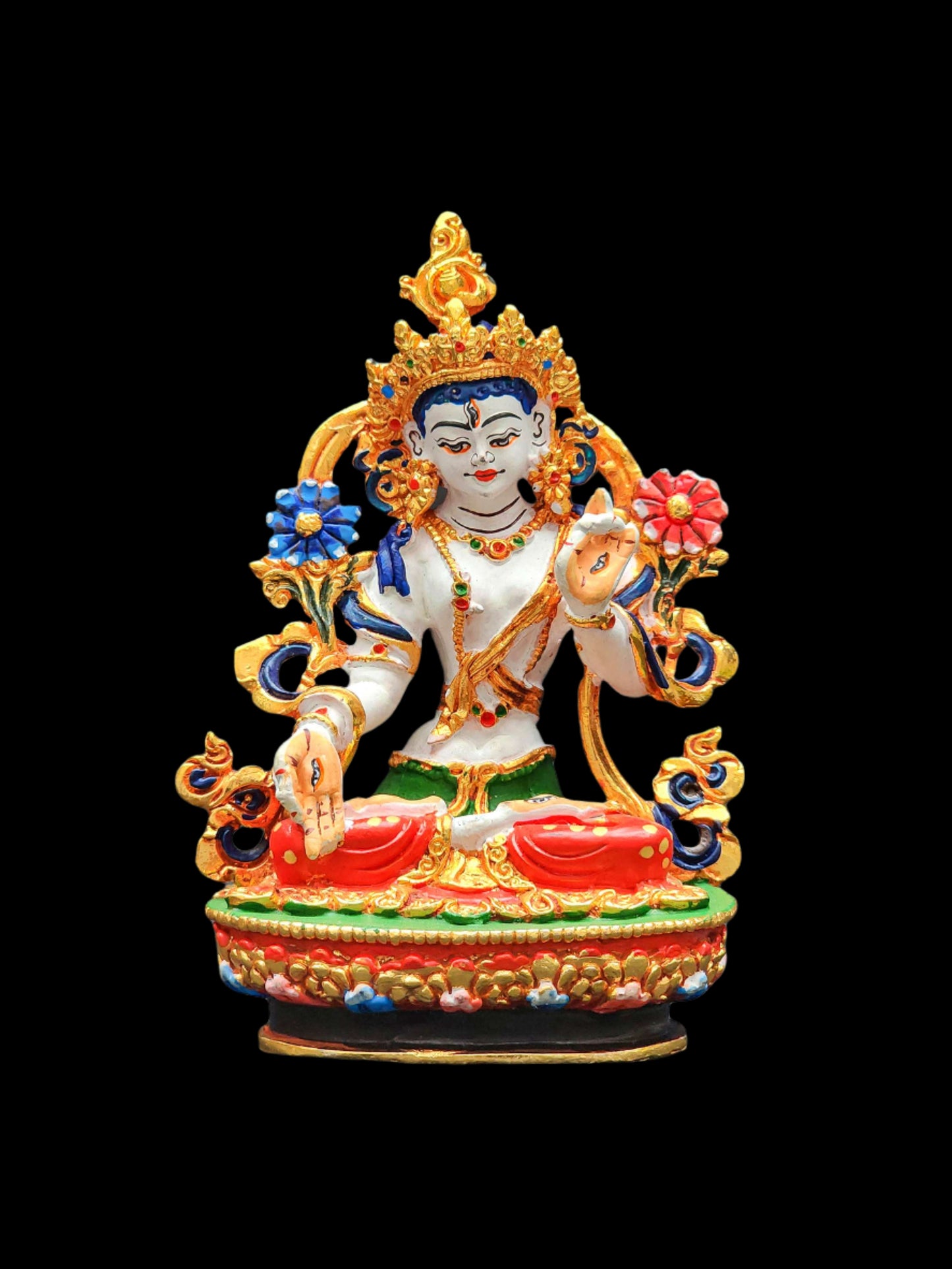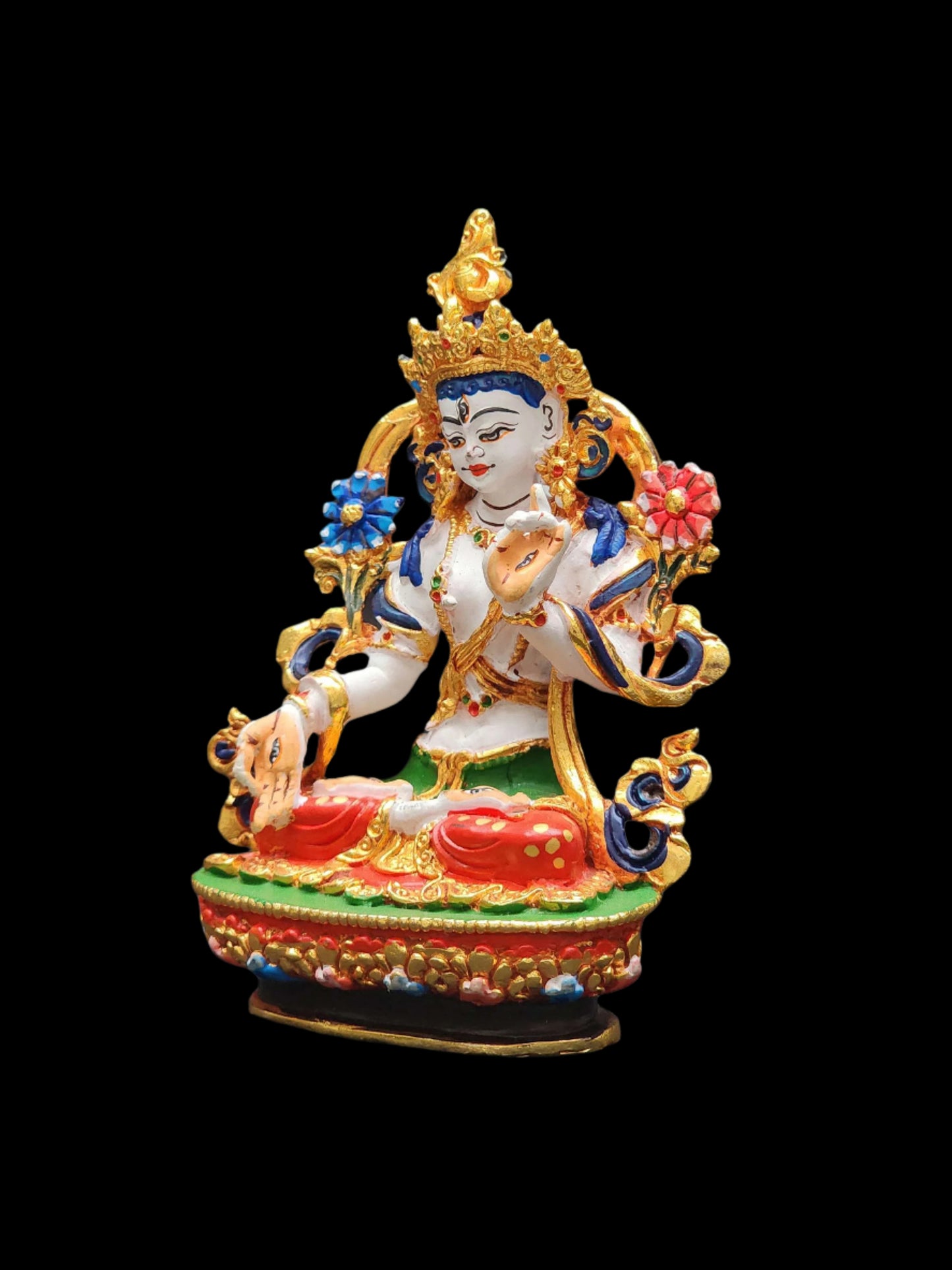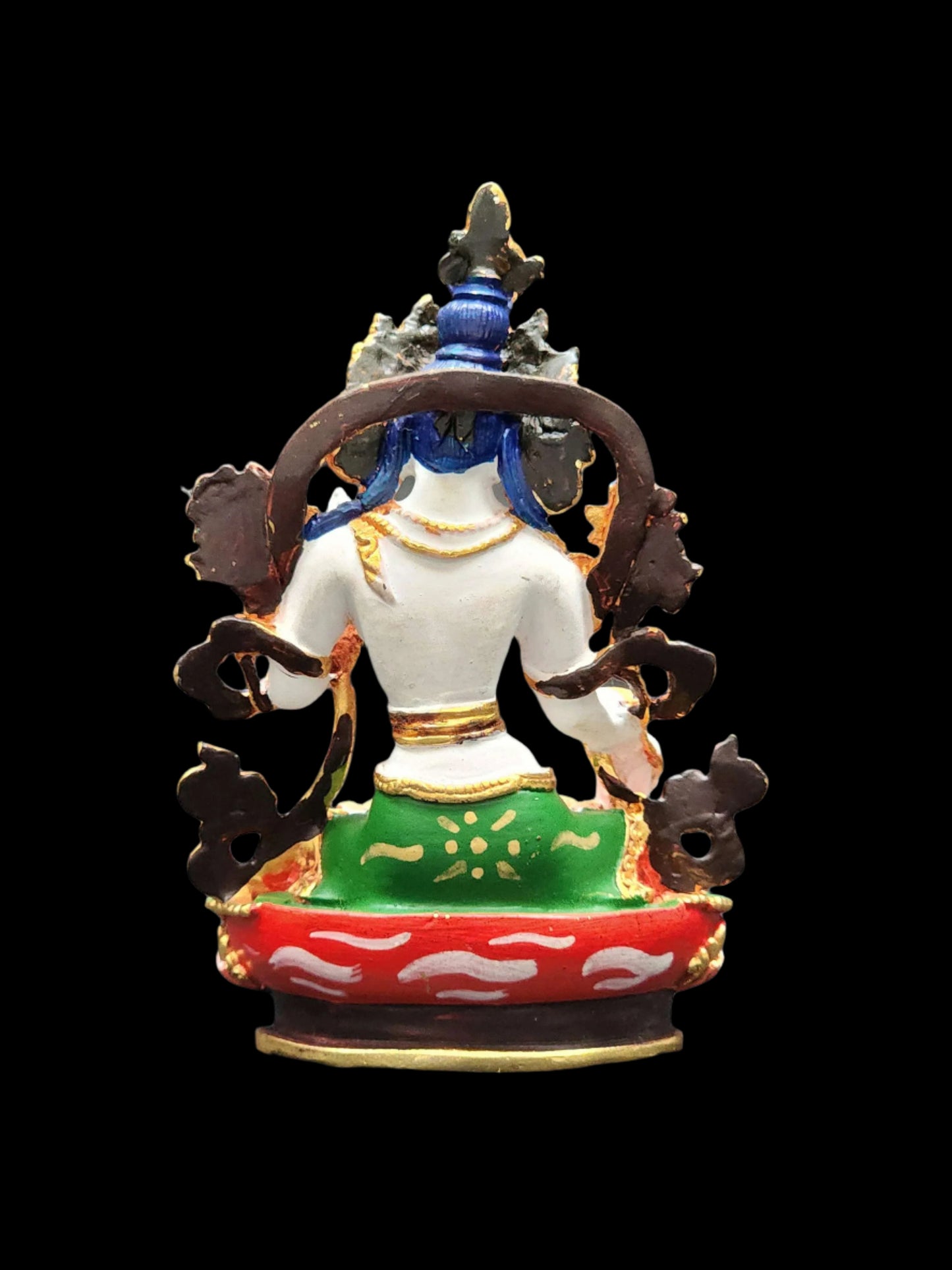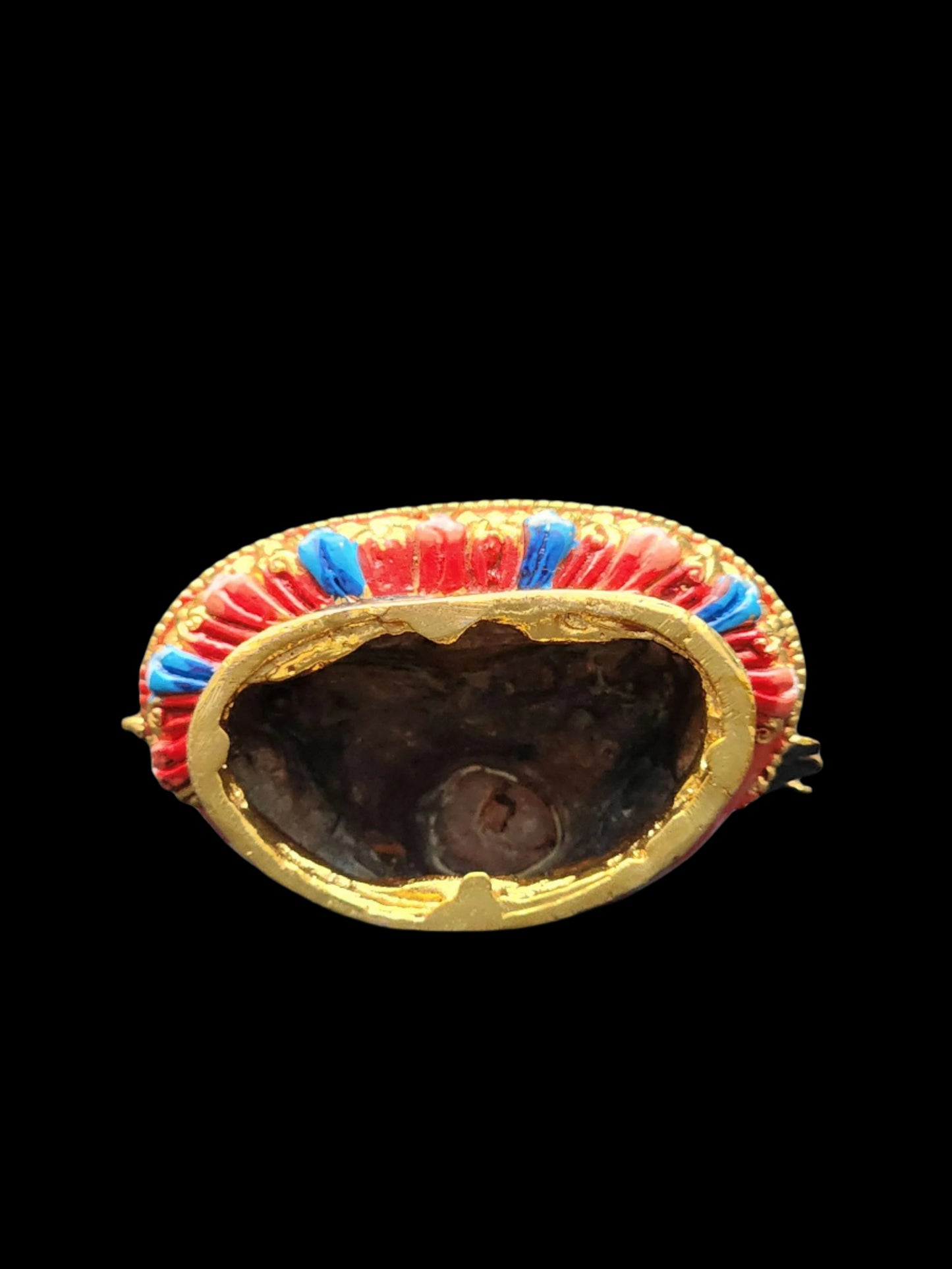Amulya
Exquisite Miniature White Tara Statue – Embodiment of Compassion & Longevity
Exquisite Miniature White Tara Statue – Embodiment of Compassion & Longevity
Couldn't load pickup availability
This meticulously crafted copper statue of White Tara, the Bodhisattva of Compassion, radiates serenity and grace. Adorned in lustrous gold accents and rich, vibrant colors, the figurine depicts White Tara in her classic meditative posture, symbolizing peace, protection, and the blessing of long life. With seven eyes (representing her all-seeing wisdom) and a gentle expression, she embodies the Four Immeasurable—Loving Kindness, Compassion, Joy, and Equanimity—making her a profound spiritual companion.
Why Choose This Sacred Art Piece?
Masterful Artistry: Expertly cast in high-quality copper for enduring beauty.
Deep Symbolism: A powerful emblem of healing, compassion, and divine grace.
Perfect Miniature Size: Ideal for altars, meditation spaces, or as a meaningful gift.
Size: 10cm (H) 6cm (W) 4cm (D)
Weight: 160 gm
Material: Copper
Finish: Traditional Gold & Vibrant Hues
HISTORY
Origins & Significance
White Tara (Sanskrit: Sitatara, Tibetan: Drolkar) is a beloved deity in Vajrayana Buddhism, revered as a manifestation of compassion and longevity. She is considered an emanation of Avalokiteshvara (Chenrezig), the Bodhisattva of Infinite Compassion, and in some traditions, she is linked to Tara’s white form, which emerged from a tear of Avalokiteshvara’s sorrow for suffering beings.
Myth of Tara’s Vow: According to legend, Tara arose from the compassionate vow of a princess who promised to attain enlightenment in a female form to guide all beings.
Association with Long Life: White Tara is especially invoked for health, healing, and protection, often called upon to overcome obstacles and extend life.
Sacred Iconography
White Tara’s form is rich in symbolism:
Seven Eyes: Her two normal eyes, plus a third eye on her forehead, and eyes on her palms and soles, signify her omniscient vigilance and ability to see suffering in all realms.
Lotus Posture (Padmasana): Represents purity, enlightenment, and meditative calm.
White Complexion: Symbolizes purity, wisdom, and the pacification of suffering.
Right Hand in Varada Mudra (Gesture of Giving): Offers blessings, protection, and boons.
Left Hand Holding a Lotus: Represents spiritual awakening and compassion in action.
Share










